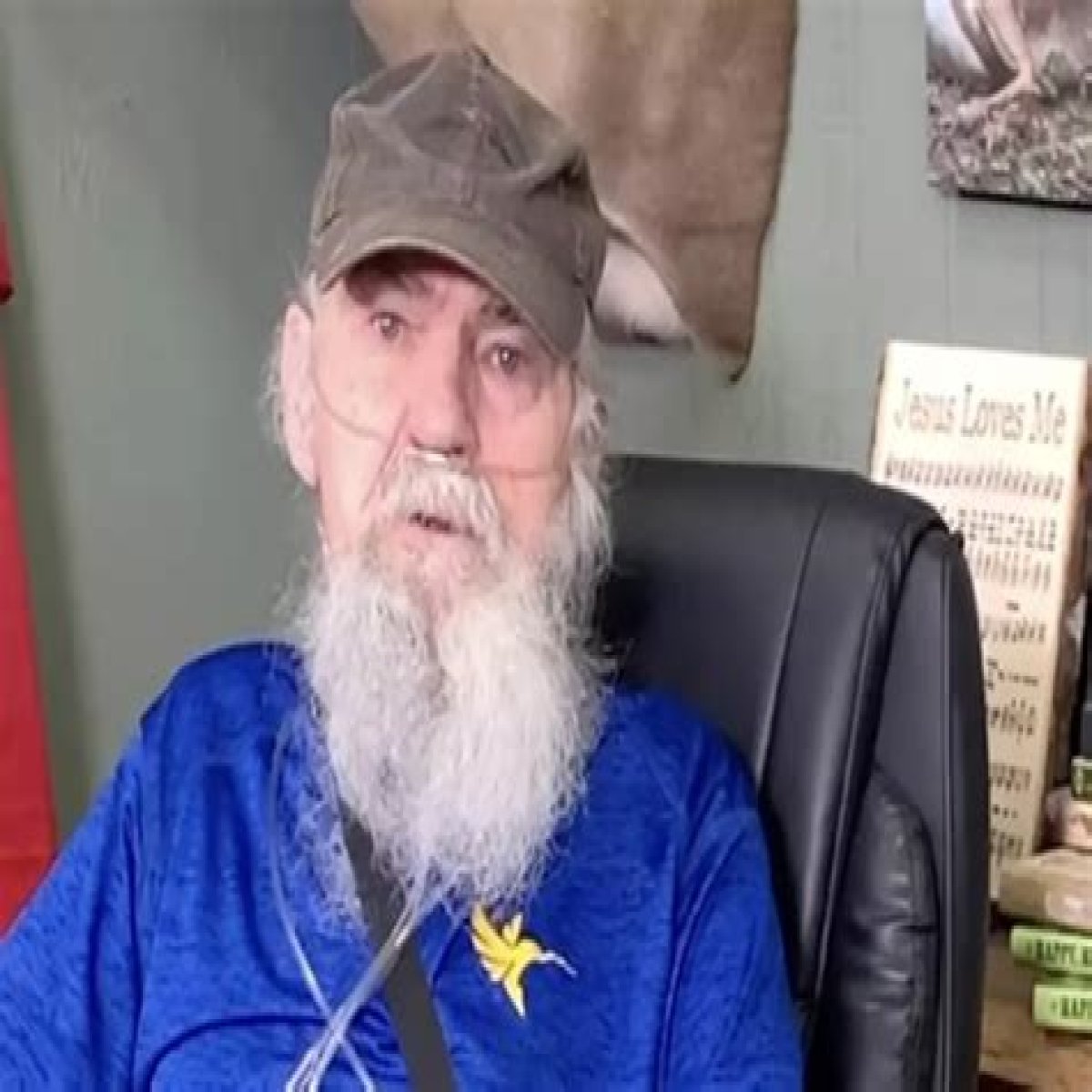## Who is Si Robertson?
Si Robertson is a famous television personality, best known for his role as Uncle Si on the reality show Duck Dynasty. The show follows the lives and adventures of the Robertson family, who run a successful duck call business in Louisiana. Si is the brother of Phil Robertson, the founder of Duck Commander, and the uncle of Willie and Jase Robertson, the current CEOs of the company. Si is also a veteran of the Vietnam War, a retired reed maker for duck calls, and a humorous storyteller. He is often seen with his trademark plastic cup, iced tea, and sunglasses. [^1^][1]
## What was the hoax about Si Robertson's death?
In March 2020, a website called Conservative Tears published an article claiming that Si Robertson had been found dead in a warehouse near the Duck Dynasty compound. The article said that Si had been shot multiple times by unknown assailants, and that the police had arrested three suspects in connection with the murder. The article also quoted a fake statement from Willie Robertson, expressing his grief and shock over the loss of his uncle. [^2^][2]
The article was a hoax, intended to trick and upset the fans of Duck Dynasty. The website that posted the article is known for publishing satirical and fictional stories, often involving celebrities and politicians. The website has a disclaimer that says that everything on the site is fiction and not real. However, many people did not notice the disclaimer or the absurd nature of the story, and believed that Si Robertson had really died. The article went viral on social media, and many fans expressed their condolences and tributes to Si. [^3^][3]
## How did Si Robertson and his family react to the hoax?
Si Robertson and his family were not amused by the hoax, and quickly debunked it on their official platforms. Si posted a video on his Facebook page, saying that he was alive and well, and that the rumor was only 95% true. He joked that he had been shot by a paintball gun, and that he had survived by drinking his iced tea. He also thanked his fans for their prayers and support, and asked them to ignore the fake news. [^4^][4]
His nephew Willie also posted a tweet, saying that Si was fine and that the story was a hoax. He said that he had talked to Si on the phone, and that he was laughing about the rumor. He also urged his followers to check the sources before believing anything they read online. [^5^][5]
## Why do people create hoaxes about celebrities' deaths?
There are many possible reasons why people create hoaxes about celebrities' deaths. Some of them are:
- To get attention and traffic. Some websites or individuals may create hoaxes to attract more visitors or followers to their platforms, and to generate more revenue from ads or clicks. They may also do it to gain fame or recognition, or to prank or troll their audiences.
- To express their opinions or agendas. Some people may create hoaxes to express their views or beliefs about certain celebrities, issues, or events. They may do it to mock, criticize, or praise the celebrities, or to influence or manipulate the public opinion or sentiment.
- To test or challenge the credibility or authority of the media or the public. Some people may create hoaxes to test or challenge the reliability or accuracy of the media or the public. They may do it to expose the flaws or biases of the media, or to show how easily the public can be fooled or misled by false information.
- To have fun or entertain themselves or others. Some people may create hoaxes just for fun or entertainment, without any malicious or ulterior motives. They may do it to amuse themselves or others, or to create a buzz or a sensation.
## How can people avoid falling for hoaxes about celebrities' deaths?
There are some tips and strategies that people can use to avoid falling for hoaxes about celebrities' deaths. Some of them are:
- Check the source and the date. People should always check the source and the date of the information they encounter online, especially if it is sensational or shocking. They should look for the credibility, reputation, and purpose of the source, and see if it is a known or verified platform. They should also look for the date of the information, and see if it is recent or outdated.
- Verify the information. People should always verify the information they encounter online, especially if it is not confirmed or corroborated by other sources. They should look for evidence, facts, or references that support or refute the information, and compare it with other reliable and reputable sources. They should also look for official statements or announcements from the celebrities or their representatives, or from the authorities or the media.
- Think critically and logically. People should always think critically and logically about the information they encounter online, especially if it is emotional or appealing. They should ask themselves questions such as: Does the information make sense? Is it consistent or contradictory? Is it plausible or improbable? Is it biased or objective? Is it relevant or irrelevant?
- Be skeptical and cautious. People should always be skeptical and cautious about the information they encounter online, especially if it is too good or too bad to be true. They should not believe everything they read or see online, and they should not share or spread the information without verifying it first. They should also be aware of the potential consequences or impacts of the information, and how it may affect them or others.
